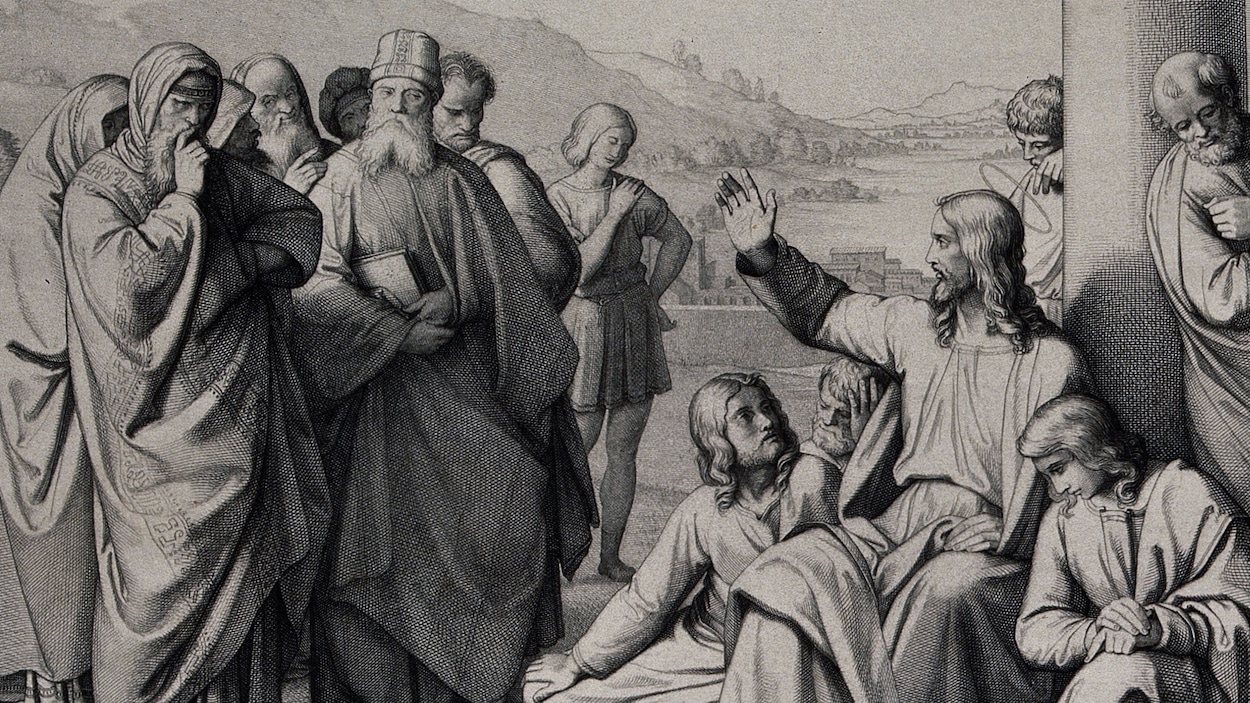Forty years ago, in 1976, a 21-year-old man named Peter was involved in a serious car accident in Chicago; he suffered brain damage, and went into a deep coma. The doctors told his family he probably wouldn’t survive, and that even if he did, he’d always remain in a comatose state. Peter’s fiancé, a young woman named Linda, refused to accept this prognosis. Every evening she sat by his bed, holding his hand and talking to him, even though he was completely unresponsive. Finally, after three-and-a-half months, Linda saw Peter’s eyelash flutter. Encouraged by this, she quit her job and became his constant companion, massaging his arms and legs and talking to him. Linda took him home and cared for him personally; she even spent all her savings on a swimming pool, hoping the sun and water would restore life to Peter’s unused limbs. Then, one day, Peter seemed to regain consciousness, and he grunted—his first sound since the accident. With Linda’s encouragement, Peter gradually managed to turn the grunts into words—and eventually recovered enough to ask Linda’s father for permission to marry her. He answered, “Peter, when you’re able to walk down the aisle, she’ll be yours.”
Two years later Peter was able to walk down the aisle of Our Lady of Pompeii Church in Chicago—using a walker, but moving under his own power. The wedding was covered by every TV station in the city, newspapers from across the country carried photos of the event, and in the next few weeks the couple received phone calls from celebrities and gifts and letters from people around the world. It was a very special celebration for two very special people, purchased through their own courage, self-giving, and determination (Link, Illustrated Sunday Homilies, Year C, Series I, p. 39). God asks each of us, in our own way, to do something similar. Life is not easy, particularly if we live it the way God wants us to, but it is worthwhile—for our sufferings and sacrifices allow us to share in God’s glory.
Worries, fears, problems, sufferings, and death were never part of God’s plan for us; these all came about through original sin. Because of Jesus, however, everything we undergo in this life can serve a higher purpose; today’s readings tell us that our struggles to remain faithful to God will be rewarded. The Gospel of John (13:31-35) relates some of Our Lord’s words at the Last Supper. The departure of Judas set everything into motion; at that moment, Jesus’ passion and death became inevitable. Yet Our Lord spoke not of this, but of divine glory—even speaking as if this process had already been accomplished. God was to be glorified through His Son’s perfect love, obedience, and self-giving, and Jesus Himself was to be glorified in the same way through His followers—for He told them, and us, “Love one another as I have loved you.” Saints Paul and Barnabas demonstrated this type of self-giving in the Acts of the Apostles (14:21-27), for they freely proclaimed the Good News of salvation in spite of all opposition, and then thanked God for what He had achieved, rather than complaining about their own difficulties and sacrifices. The Book of Revelation (21:1-5) describes what can be the end result of our sufferings here on earth: membership in God’s glorious and everlasting Kingdom, where there will be “no more death or mourning, wailing or pain. . . .”
A Christian author once wrote, “The child of God is often called to suffer because there is nothing else that will convince onlookers of the reality and power of true religion as suffering will do, when it is borne with Christian fortitude” (F. B. Meyer, quoted in Zuck, The Speaker’s Quote Book, p. 368). In other words, our misfortunes in life can be an opportunity to share the Gospel with others. The Church often reminds us that we’re all meant to be evangelizers, but many of us aren’t comfortable talking about our faith with other people. One very practical alternative is simply bearing our crosses in a spirit of cheerfulness and trust, rather than complaining or feeling sorry for ourselves; when people see that our faith gives us the courage and strength to persevere with hope instead of growing bitter or despondent, we’ll be bearing witness to God’s love and to the truth of the Christian message in a very powerful way.
All of us have various burdens, sometimes quite apparent to others, but more often hidden, known perhaps only to those closest to us. These might involve our health, or our emotional well-being; they might consist of financial worries, problems at work, or family difficulties. We might be experiencing great loneliness, or depression, or self-doubt; we might be hurting from a major disappointment or an experience of rejection, or perhaps grieving over the death of a loved one. Others might look at us and say, “You’re coping so well,” or “You’re amazing—nothing seems to bother you,” but we think to ourselves, “If only they knew.” The truth is that Someone does know. God sees and understands everything we’re experiencing, and He promises to help us through it and make it all worthwhile.
Sometimes we might face major struggles, and may even be called to a certain form of heroism, like Linda and Peter. More often we have to cope with the routine worries and fears and inconveniences of life. In each case, however, faith can sustain us, hope can encourage us, and love can renew us. Life can be hard, and over the years we can often see the physical results: our backs become bent, our foreheads become wrinkled, our eyes become tired. We cannot always see what’s happening inside us: if we bear our sufferings in faith, our spirits are being strengthened, our virtues are being developed, and our souls are being prepared for glory. This process will be completed and perfected in heaven, but God asks us to let it begin now. As Christians, we believe that suffering can lead to glory; this was true for Jesus, and He desires it to be true for us.








